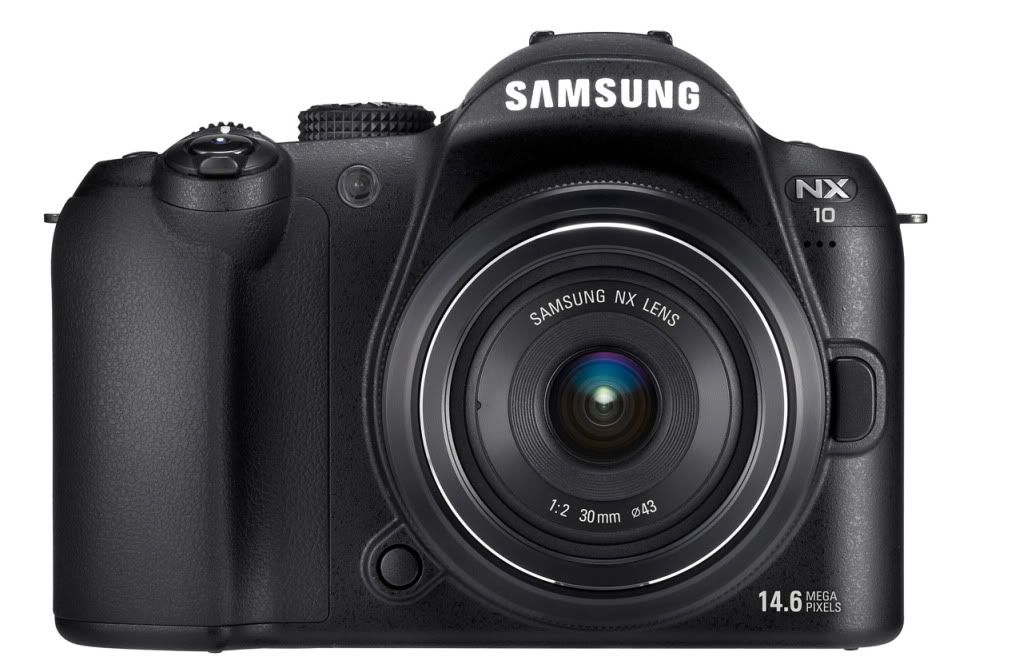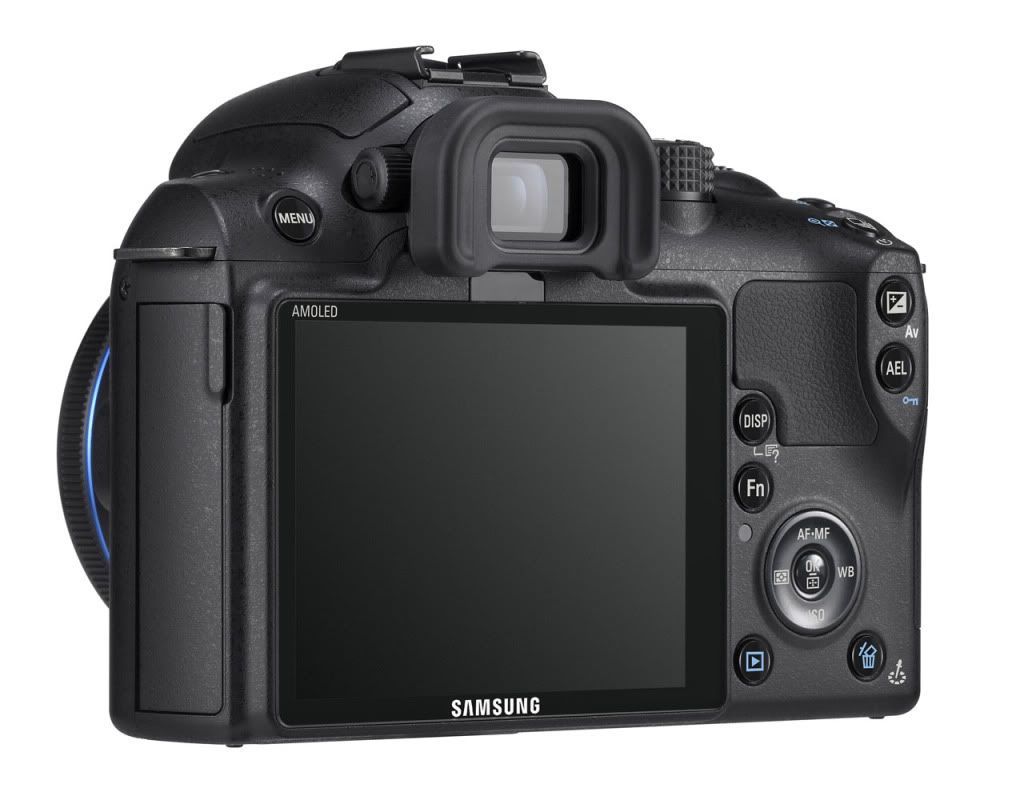This makes things very interesting, because now you have a compact form factor camera which is less vibration prone (due to the lack of a reflex mirror), and yet retain the advantage of a traditional DSLR’s sensor size. This will definitely be interesting for travel photographers, or even street photographers. In fact, this is like a Leica M8 camera, except that it’ll cost much less!
But unlike a Leica M8, the lenses are almost the same size as the traditional DSLR. The Samsung has an impressive 3” OLED LCD display, as well as a VGA viewfinder instead of a true optical viewfinder (which traditionalist will need time to get used to). The Samsung NX10 has three lenses and a flash for users to select from:
- SAMSUNG 30mm F2
- SAMSUNG 18-55mm F3.5-5.6 OIS (image-stabilizer)
- SAMSUNG 50-200mm F4-5.6 ED OIS (image-stabilizer)
Another concern would be the autofocus speed. Unlike DSLRs, cameras without a reflex mirror (such as micro four-third systems and the Samsung NX10) can only use contrast detection, which traditionally cannot match the speed of phase detection autofocus of DSLRs. A slow autofocus would certainly leave a lot of prospective customers in the cold, especially if you are used to the fast AF in today’s crop of DSLRs.
A key consideration would be sensor quality. Building handphone camera sensors is one thing, but building bona-fide APS-C camera sensors are another thing altogether. Given that Samsung cobbled up the NX10 all by themselves, we’d probably need time to review the quality of the sensor and image processor. Without imaging pedigree and experience, Samsung has to play catch-up fast with the leaders.
Battery life is another issue as well, since the Samsung NX10 uses the LCD instead of optical viewfinder. The battery is rated at 1300 mAH, so the OLED had better be really skimpy on juice or users would have to stock up on batteries.
I think Samsung finally figured that in order to break into a tight market as a newcomer, it needs to rewrite the rules. Let the revolution begin!



No comments:
Post a Comment